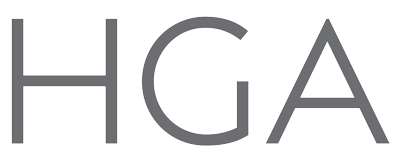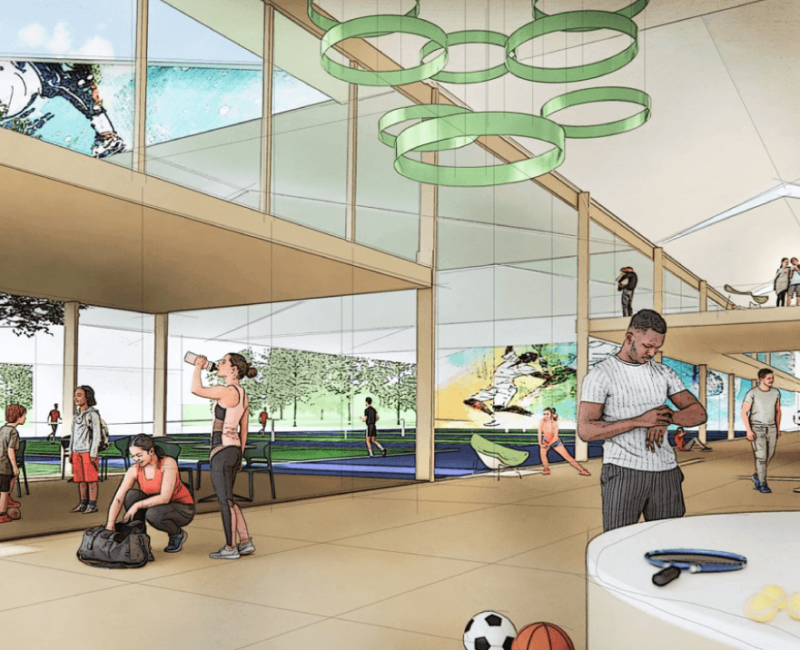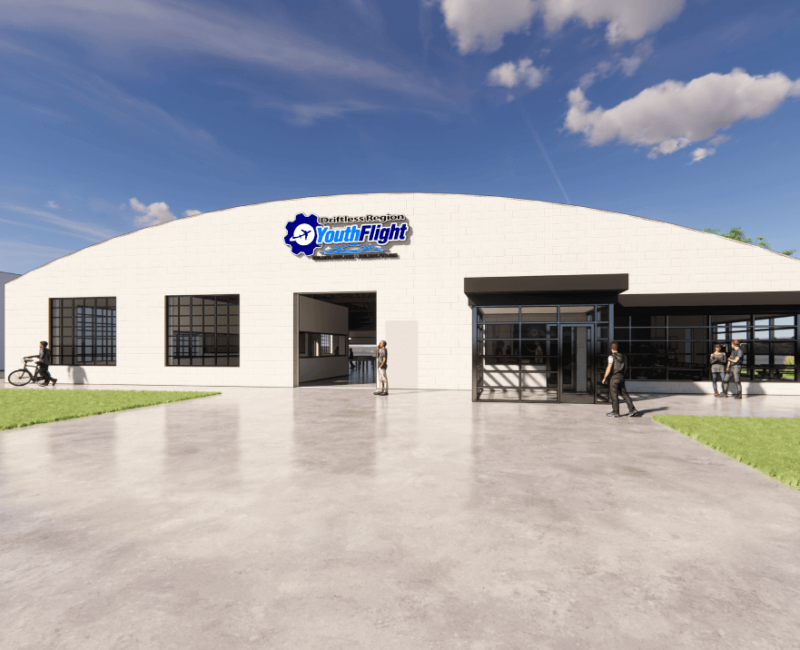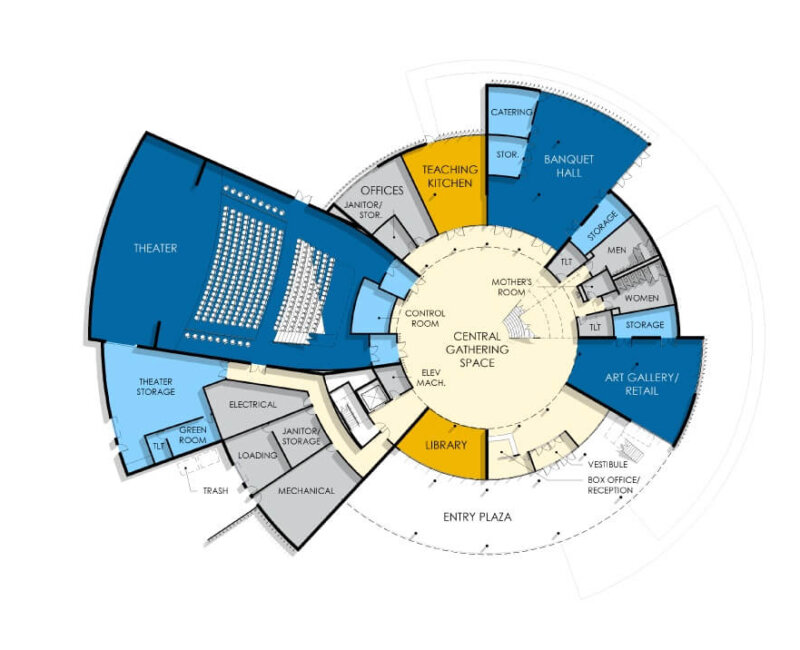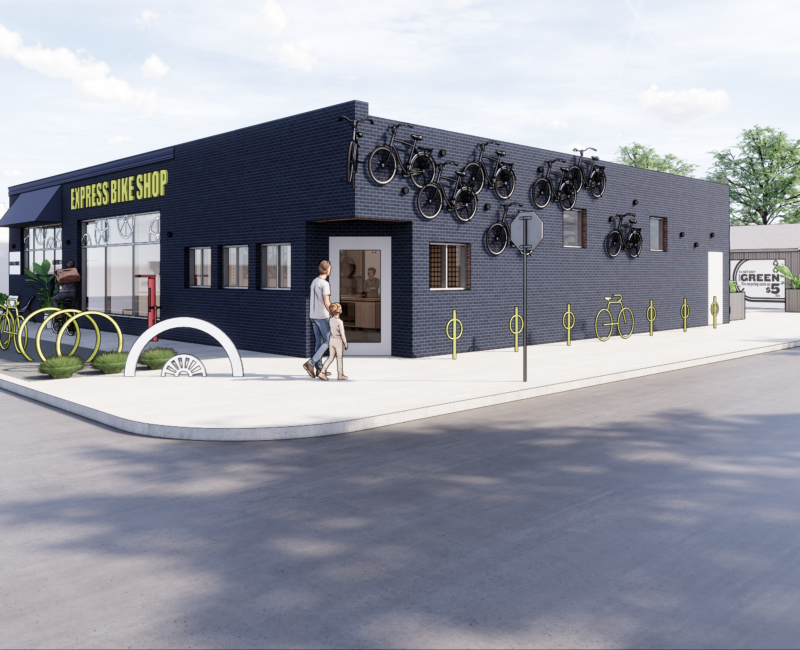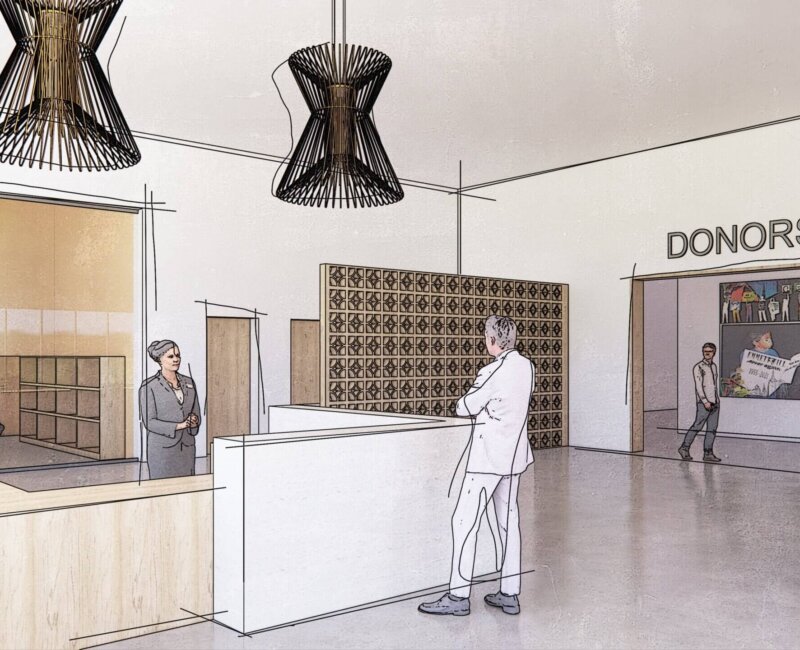2023 Minneapolis Annual Community Design Pro Bono Workshop
As part of HGA’s Community Action Program, the Minneapolis Pro Bono Design Workshop allows us as designers (architects, engineers, landscape architects, interior designers, lighting designers, graphic designers and artists) to give back to our communities using our professional design skills.
Social impact goals for the Design Workshop include partnering with organizations and serving communities that have not historically had access to involvement in the design process and working in partnership with design professionals. We strive to partner with community organizations that are aligned with our greater company values of spatial equity and justice in the built environment.
This year’s Pro Bono Design Workshop will be held September 28th- 29th, 2023 at HGA in Minneapolis. Click here to see the full agenda and participation expectations for the event.
Apply Now>>
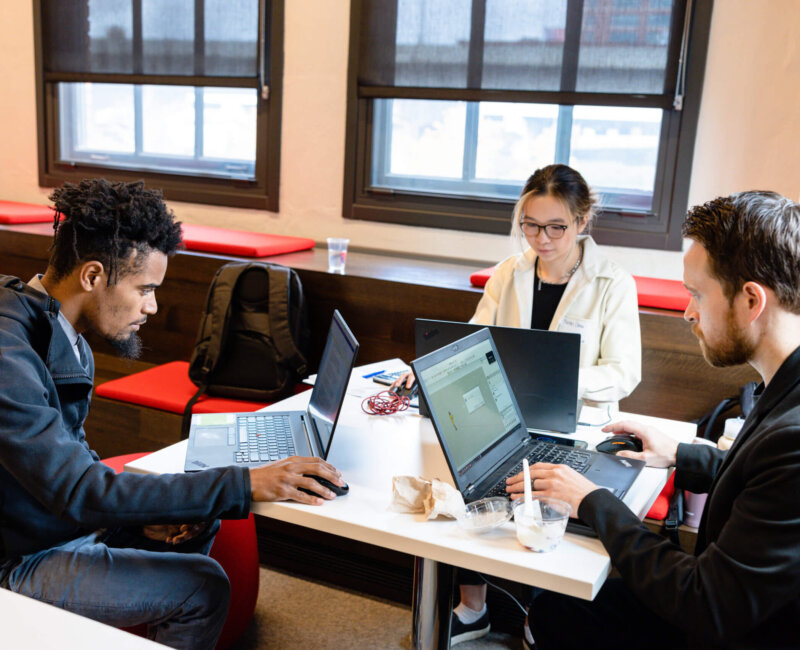
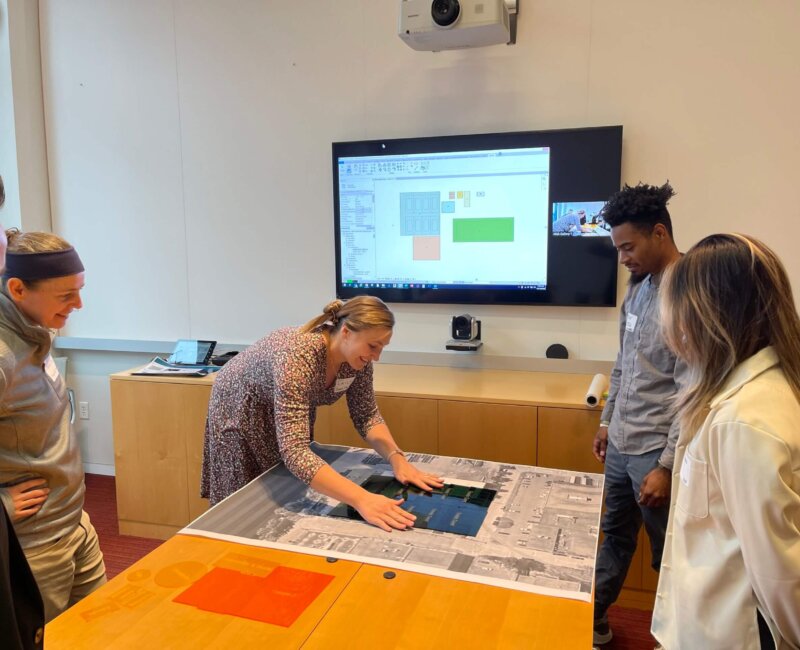
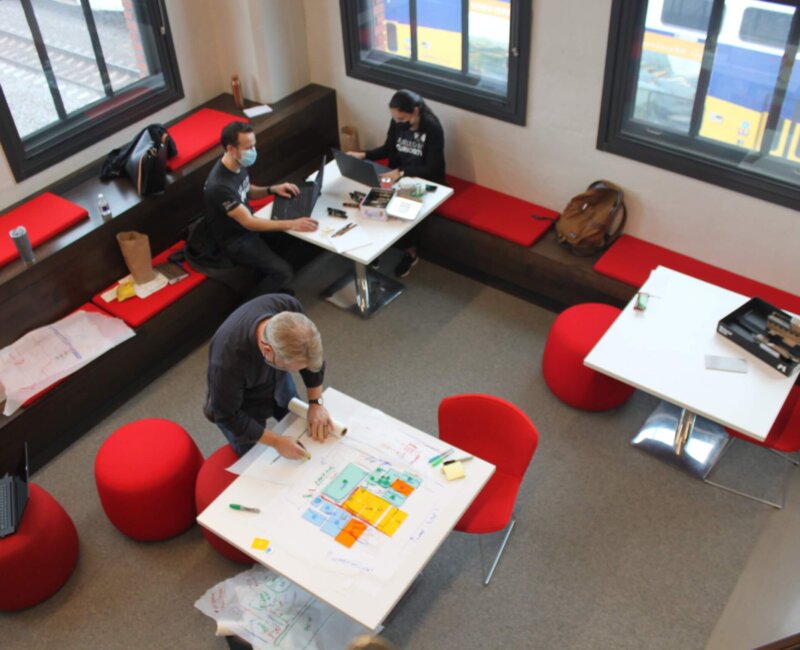
Eligibility
Any project led by non-profit organizations, neighborhood groups/associations/coalitions and schools within 2 hours of the Minneapolis-St. Paul metro area are eligible and will be given priority over those residing outside that area. This program is intended for community groups who have not yet received funding or other resources for design support thus far for their project.
How to Apply
Application for this year’s Minneapolis Pro Bono Design Workshop will open in mid-July and close September 5th, 2023.
Typically, 4-5 project partners are selected each year.
To apply, please download this application and send it back to this email. If you have any questions prior to submitting your application or would like to discuss your proposal, please do not hesitate to contact Kaitlin at kschalow@hga.com.
For all applications, we will send an email confirmation that we have received your application for consideration.
Selection Process
Projects will be selected based on the following criteria:
- Community Impact- What level of impact will the proposed project have on both the individuals it is directly serving as well as the greater community?
- Project Need- To what degree will the proposed project fulfill or address an identified social need?
- Organization's Mission- This is twofold: does the proposed project meet the organization’s mission and the people it serves? Do the values of the organization also align with overall HGA goals for the Community Action program?
- Project Viability & Capacity- What is the long-term viability of the project? Does the organization have a clear action plan for steps after design services are rendered?
If your project is selected, you will be designated a design team from the HGA staff.
Explore Our Remarkable Design Workshop Projects and Partnerships
The projects we’ve engaged with for the Design Workshop have been so wide ranging over the past few years! If you dream it up, we can help you turn that vision into a reality. We’ve worked with partners looking to convert a church into a community center and food pantry, teamed up with a school to address their accessibility issues in order to create a welcoming environment for all, conceptualized a new home for a multi-cultural center, adapted an old airplane hangar into a space for a trades program to encourage youth into aviation, and brainstormed with a museum on how best to teach and engage in engineering for children- to just name a few of the many, many incredible projects we’ve been able to partner on. Find below a few partners from previous years.
We are always proud of the amazing organizations we’ve been able to work with and be inspired by during our Design Workshops. We thank the following organizations for their participation and continuing partnership and support over the years:
- Keystone Community Services – Express Bike Shop
- Minnesota African American Heritage Museum
- CloseKnit
- Disciples Ministry Church
- Driftless Region Youth Flight
- Friends School of Minnesota
- InnerCity Tennis
- The Works Museum
- Center for Irish Music
- Minnesota African American Heritage Museum
- Itasca Economic Development Corporation Innovation Center
- East Metro Civic Alliance
- Hired
- Urban Ventures Urban Farm
- Leonardo’s Basement
- Amherst H. Wilder Foundation
- Ascension School
- Blue Water Theatre Company
- Camp One Heartland
- Midtown Greenway Coalition
- In Heart of the Beast Puppet and Mask Theatre
- Hale Community School
- District 1 Community Council
- Children’s Museum of Southern Minnesota
- Hex House
- Perpich Arts Library
- Sand Creek Elementary
- Marcy-Holmes Neighborhood Association
- Minneapolis Public Schools
- Mississippi Park Connection
- Resource, Inc
![]()
Frequently asked questions?
How does the workshop day typically go? What commitment can project groups expect?
The Design Workshop is engrained with a co-creation collaboration model. You will be with us every step of the way, providing feedback and input that will influence the deliverables of the workshop. For a detailed agenda, please refer to the key dates and times outlined above. We ask that at a minimum 1-2 representatives from your organization be present during the entire duration of the workshop on site at HGA. If team members cannot physically be present at HGA the day of the event, alternate virtual meeting options can be accommodated.
During the periods of time called out in the agenda as “Interactive Team Sessions” teams will alternate between active team discussion and independent design work time. During independent design work time, organization participants are encouraged to utilize our commons and café spaces to conduct their normal business work as needed. The café and commons is located directly adjacent to the designated conference rooms for project teams.
Is it a requirement to be a 501(c)3 registered organization?
No. Our priority is making meaningful impact in our communities. Non-profit organizations, neighborhood groups/associations/coalitions and schools can all apply. However, nonprofit organizations applying to the workshop will be asked to provide their EIN identification number for confirmation of their status.
How far along does a project need to be to apply?
Projects can be in different stages of development depending on the deliverables you are looking to achieve out of the workshop. We can support projects that do not have any concepts developed as well as those that have begun the initial planning and conceptualization process. One of the main benefits of the workshop is providing organizations with conceptual imagery and plans that align with their project vision and can be used for fundraising or grant applications.
If our application doesn’t get accepted this year, can we apply in future years?
Absolutely! If your project is not selected the first time around it can be submitted in future years also.
Are your pro bono design services limited to the annual Design Workshop?
Not always. We like to form long-term partnerships with the organizations and groups we work with at the Design Workshop. As a result, in some instances our pro bono relationships extend past the duration of the workshop itself, providing additional content as organizations navigate the fundraising process. However, the annual workshop is always used as the kick-off to a partnership for pro bono services.
What types of Design Assistance Services are offered?
Working together with your organization, we can help identify and provide visual and decision-making content that will help you make your project vision a reality. Deliverables will vary for each organization based on your particular needs, but common workshop deliverables include diagrammatic floor plans, artistic renderings, sketches, diagrams, assessments, analysis or other documents/supplementary material that will assist your organization in growing support and funding for your project. Please note that workshop design services do not include complete, architectural, or engineered stamped construction documents.
Not everyone is familiar with what design services architects and engineers provide. Therefore, we’ve included the list below as a catalyst for further conversation. Services and deliverables provided by the Community Action Design Workshop can include, but are not limited to the following:
· Ideation & Visioning Processes – Let us help you come up with or refine your project’s overall big picture vision! Designers excel at creative problem solving and generating ideas through an iterative process.
· Community & Creative Engagement – The most successful community projects have meaningful engagement at their core. We can work with your organization to come up with a strategy for authentic engagement efforts. Engraining engagement early with your project allows for a more equitable decision-making process for the group. It also allows for a stronger sense of ownership, pride, and deeper relationships with the community in the end.
· Conceptual Design Drawings – Conceptual drawings are done early in the design process and visioning stage to have visual tools in order to further discuss design intent. These drawings are typically void of detail, dimensions, and technical notes. Common conceptual design drawings include diagrammatic floor plans, artistic renderings, sketches, and diagrams.
· Cost Estimating – So you have a vision…but you need to understand the ballpark figure of what turning that vision into reality would be? We can help get your organization a high-level cost estimate to use as a target for fundraising.
· Existing Conditions Assessment – Do you have current design issues with your facility such as the cost to operate, accessibility, the building envelope, HVAC, lighting, power, technology or structural system to name a few? Our design team can help your organization understand what condition your existing building is in and what it would take in a renovation to achieve a certain performance end goal.
· Programming and Space Planning – Part of refining a vision is understanding to what scope work needs to be performed. Programming allows us to prioritize program needs and square footage sizes. Space planning allows us to test our assumptions on quantity and size by doing some quick “test fit” studies.
· Site Analysis – Whether your vision is reuse of an existing space or a new site, site analysis allows the team to investigate local zoning, topography restrictions, traffic conditions, climatic considerations, and larger overall connections within the community.
· Sustainability Strategies – Does your organization desire to be more environmentally conscious, resilient, or reduce its environmental footprint? The design team can work with your organization to develop design strategies that help maximize your organization’s positive impact on the environment.
· Branding/ Graphic Design/ Environmental Graphics – The way signage and overall branding is integrated into built environment can have a profound impact on how individuals experience space. Working with our branding and environmental graphics team we can come up with branding strategies, branding design guidelines, signage design and logo revisioning.
